- Actually there have.
§ Nice Art: Jamie McKelvie tweeted some art from Captain Marvel #30, which features a short story by him:
Captain Marvel #30 went off to print recently, featuring a short story written, drawn and coloured by me, and lettered by Clayton Cowles, in which Carol pays a visit to Kamala Khan. I'm quite proud of this one. Out July 21st! pic.twitter.com/WvBB2y5bsD
— Jamie McKelvie (@McKelvie) June 24, 2021
§ At Women write about Comics, Cori McCreery looks at the percentage of women who won and were nominated for Eisner Awards over the years — complete with charts and graphs, which show that female rep went way down in this year’s noms:
Last year, women were winners in 65% of the categories, including the first time women have ever swept the “Best Writer,” “Best Writer/Artist,” and “Best Penciler/Inker or Penciler/Inker Team” categories, the three most prestigious solo awards of the event. This was an incredible feat and one that gave many of us hope and joy about the future of the medium. And then the nominees for the 2021 Eisners were announced. Across the board, the nominees are less inclusive than last year’s list, and in the case of gender specifically, the numbers are absolutely dire. Despite sweeping the big three solo categories last year, there’s not a single woman nominated in those categories for 2021. Overall, women are down from 32% of total nominees last year to 25% this year.
But it’s this little nugget that really got me thinking about women letterers:
In the 28 years that the Eisners have given an award for best lettering, not a single woman has ever taken home the globe. Todd Klein has though, he’s won the award 18 years out of that 28. In fact, he has more wins in the category than women have even gotten nominations. The first woman to be nominated for “Best Lettering” was Laura Lee Gulledge in 2012, 19 years after Todd Klein won the inaugural award in 1993. By that point, he’d won 16 out of the 19 years, with nary a woman to be included. 2020 was only the second year in which more than one woman had been nominated: Emilie Plateau and Tillie Walden. This brought the total number of women to ever be nominated for this award up to ten, and there the number stays because no women were nominated in 2021. This is despite Ariana Maher putting out some of the best lettering work in comics, good enough that it makes books noticeably better. Oh well, maybe she can be the first woman to win this award in 2022.
It’s interesting that this “craft” category has so few female “stars.” Coloring, a similarly overlooked skill for much of comics history in North America, was traditionally done by women, perhaps because it involved tedious technical speccing with color codes from a chart and was considered drudgery. All that changed with modern digital techniques, of course, but there are still many prominent female identified colorists. Many female cartoonists letter their own work, but despite woman having a key legacy in the history of calligraphy, it’s still seems to be considered a “guy thing” in comics…or at least in comics awards.
Thus it was that when I spotted this, my eyes perked up:
The lettering Jeannie Lee did in the Kirby Manga Mania @VIZMedia recently released is phenomenal!
The sheer volume of SFX in this book would intimidate most letterers but the way she matched them so close to the original is seriously award-worthy work. pic.twitter.com/jXzvje81lO
— Phil Christie (@PhilSChristie) June 27, 2021
In a subsequent tweet Deb Aoki wondered:
Do manga publishers submit noteworthy lettering work for consider for the Eisner Awards? No offense meant to this year’s nominees, but it seems like the same 4-5 ppl get nominated every year, & never a manga nom
— Deb Aoki (@debaoki) June 28, 2021
I hope Eisner judges get more aware of letterers besides Todd Klein (great as he is) and also more manga that is eligible in more than just that category.
§ Rob Salkowitz went to his first in-person con since you-know-what and it sounds like everything picked up where it left off.
Light attendance but plenty of activity. When we arrived Friday afternoon, crowds were sparse but foot traffic was brisk. Word is it picked up considerably over the weekend when people were off work and fans making the trek from Seattle didn’t have to contend with appalling rush hour traffic and unwelcome highway detours. The show floor was well designed to appeal to the same cohort there to see the guests. Anyone making the trip to see the A-list of 70s-80s-90s era creators would find a great assortment of vintage comics, toys and pop culture artifacts from that era to choose from, with little in the way of the filler you sometimes get at smaller conventions.
§ It was the 30th Anniversary of The Rocketeer last week and this film has found a place in our hearts:
Thirty years ago, The Rocketeer opened in third place at the US box office, well behind Robin Hood: Prince of Thieves, the juggernaut that had premiered the week before, and a little behind the Billy Crystal comedy City Slickers, which was in its third week. It finished just ahead of Dying Young, but only because it was allotted more screens. The viewing public was genuinely torn between a crackerjack retro adventure about a jet pack-wearing superhero or a drippy, modern-day Love Story in which Julia Roberts falls in love with a terminally ill cancer patient. A humbler fate for this franchise non-starter could not have been imagined. And yet, here is a 30th anniversary essay on The Rocketeer.
I reckon more people watch The Rocketeer today than the other three films.
§ Okay just what the heck is going on with that weird Substack comics thing we wrote about a few weeks ago? Graeme McMillan did a deep dive for Inverse, which kicked off a flame war between Glenn Gr••nwald, Jesse S*ngal and …Cully Hamner? You had to be there. But anyway, Substack is working with writers who will hire artists, which is not necessarily the best way to make comics?
As bad as that sounds, the truth about Substack’s new comics strategy might be even worse than you think. Inverse spoke with the newsletter startup and reached out to various comic book writers and artists to get to the bottom of the company’s plans to shake up this industry just like it already has in the journalism world. The truth reveals a fundamental misunderstanding by Substack of how comics work, and a troubling decision to apparently double-down on its worst tendencies as it expands its newsletter empire into new territory.
Still no word from project lead Nick Spencer.
§ Ryan Reynolds is a very funny guy, as anyone who has watched a Deadpool movie knows. But did you know that he is so funny that he actually started a marketing company with partner George Dewey? Maximum Effort Marketing is behind all those goofy ads for Reynolds-owned brands Aviation Gin and Mint Mobile. Reynolds is also a very good businessman, as he sold Aviation Gin for $610 million, and he’s also sold Maximum Effort Marketing, Adweek reports.
Under the deal, Maximum Effort Marketing will retain its identity, operating as a creative agency within MNTN. Reynolds will assume the role of chief creative officer for MNTN and George Dewey will continue in his role as president of Maximum Effort. The duo’s production company, Maximum Effort Productions (responsible for films like Pokémon: Detective Pikachu and the forthcoming Deadpool 3) is not part of the transaction and will continue to operate as a separate company. “The explosion of the connected TV presents a once-in-a-generation opportunity to bring creative and media back together,” MNTN CEO Mark Douglas said in a statement. “Creative is the center of the advertising industry and I’ve always thought it odd to have creative and media walled off from each other.”
No sale price was mentioned, but Adweek did name Reynolds as its Brand Visionary in 2020.
§ Speaking of manga, Little White Lies looks at Tezuka’s Barbara, a 2019 film based on Barbara, which was manga godfather Osamu Tezuka’s attempt at a “gekiga” or true to life story. The film was directed by Tezuka’s son Macoto and it sounds…wild, with, the subtext of Tezuka’s own anxiety about staying relevant, along with (unfortunately) more of his problematic ideas about sex and women:
Yosuke Mikura (Goro Inagaki) is a young writer whose work has made him a celebrity, but unlike his contemporary Hiroyuki Yotsuya (Kiyohiko Shibukawa) he is not winning any literary awards, and worries that his recent reliance on sexual themes is reducing his writing to trashy sensationalism, devoured by readers but just as quickly forgotten. Still, sporting his shades at night and even in his apartment, Yosuke has all the hipster swagger and arrogant aloofness of youth. When he runs into drunk, down-and-out Barbara (Fumi Nikaido) in an underpass, Yosuke is surprised to hear her slur a quotation from Verlaine, and even more surprised to discover, after inviting this filthy, malodorous woman back to his immaculate apartment for more drinks, that she is both a reader and a critic of his books. “They’re too neat,” she complains, and soon Barbara will be messing up Yosuke’s home, life and work, all as part of a mystic journey to become a better, or at least a different, writer.
The film is out on Blu-Ray and DVD now.
§ Ghost World, the movie, may be kind of problematic these days, but the opening credits, set to “Jaan Pehechaan Ho,” never get old; also from Little White Lies:
In the opening credits, Zwigoff intercuts a highly-stylised scene from the 1965 Bollywood thriller Gumnaam with a row of nondescript suburban homes and their inhabitants. The clips from Gumnaam see a host of masked dancers gyrating to Mohammed Rafi’s ‘Jaan Pehechaan Ho’ (roughly meaning “let’s know each other”), a brassy Hindi surf track with enough verve to jumpstart a car. The suburbanites, by stark contrast, are a lethargic bunch: some smoking, some reclining, all vaguely glancing at walls and windows while televisions paint light onto their faces. The camera finally finds Enid prancing around her room in a cap and gown while the Gumnaam sequence continues on her TV set. She matches her movements to the dancers with no sense of irony, bobbing her head and shaking her wrists to the beat. Unlike the pallid blue-grey rooms we’ve just seen, Enid’s private space is an oasis: punky, kitschy, adorned with doll heads and a Pufnstuf poster.


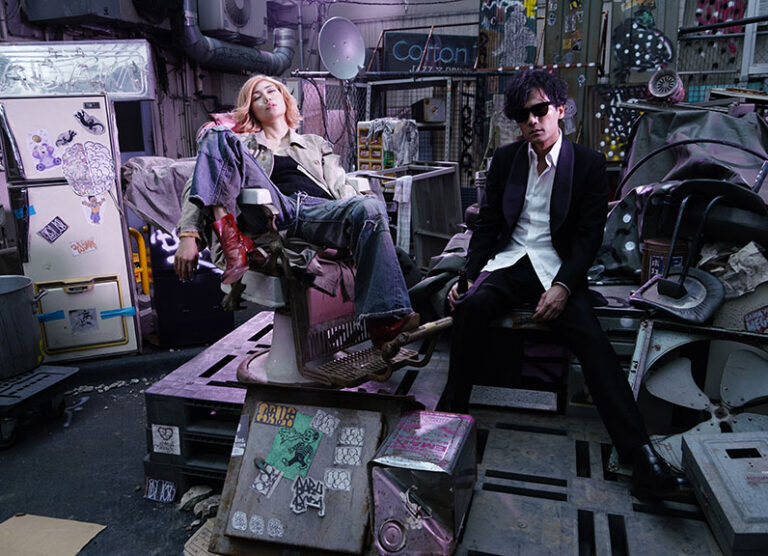
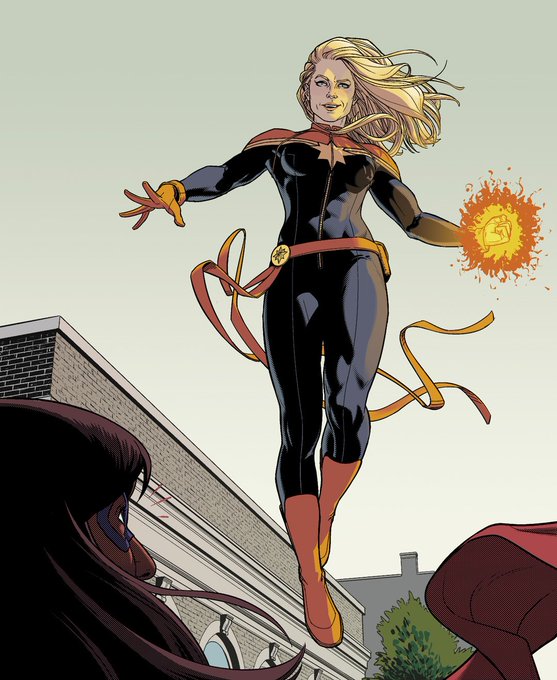
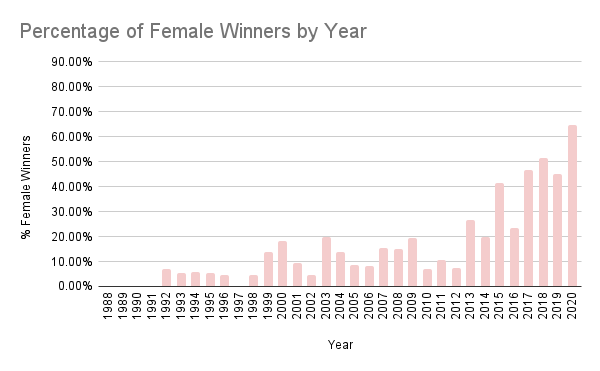
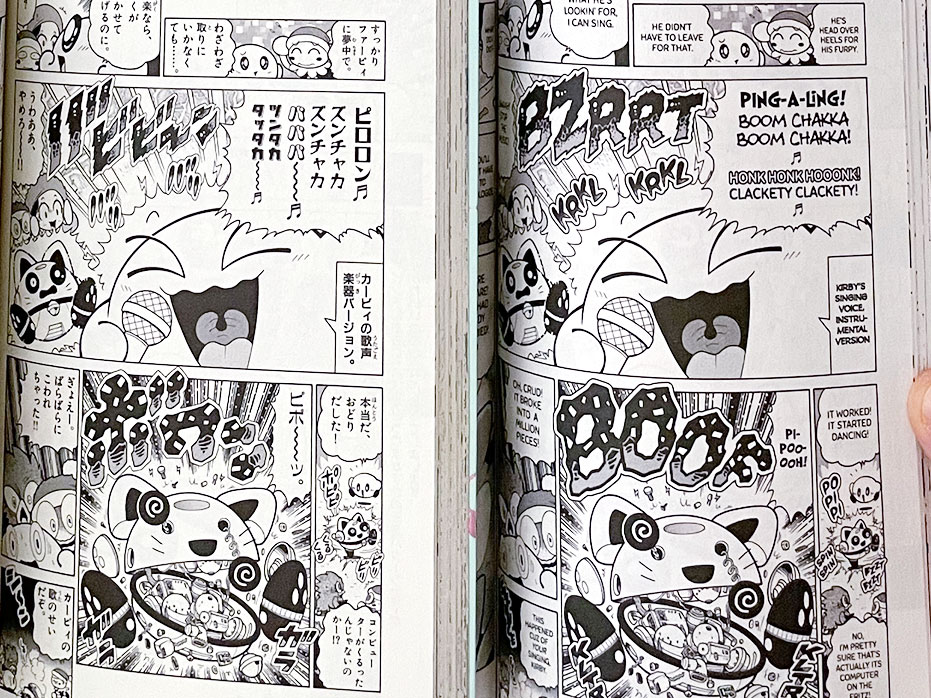
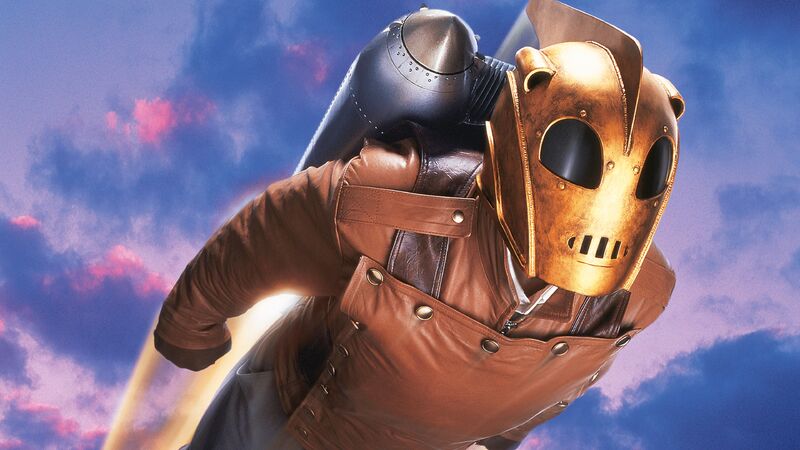
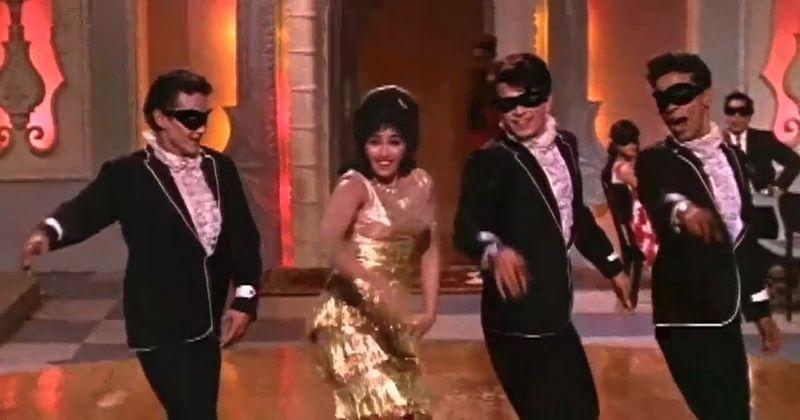

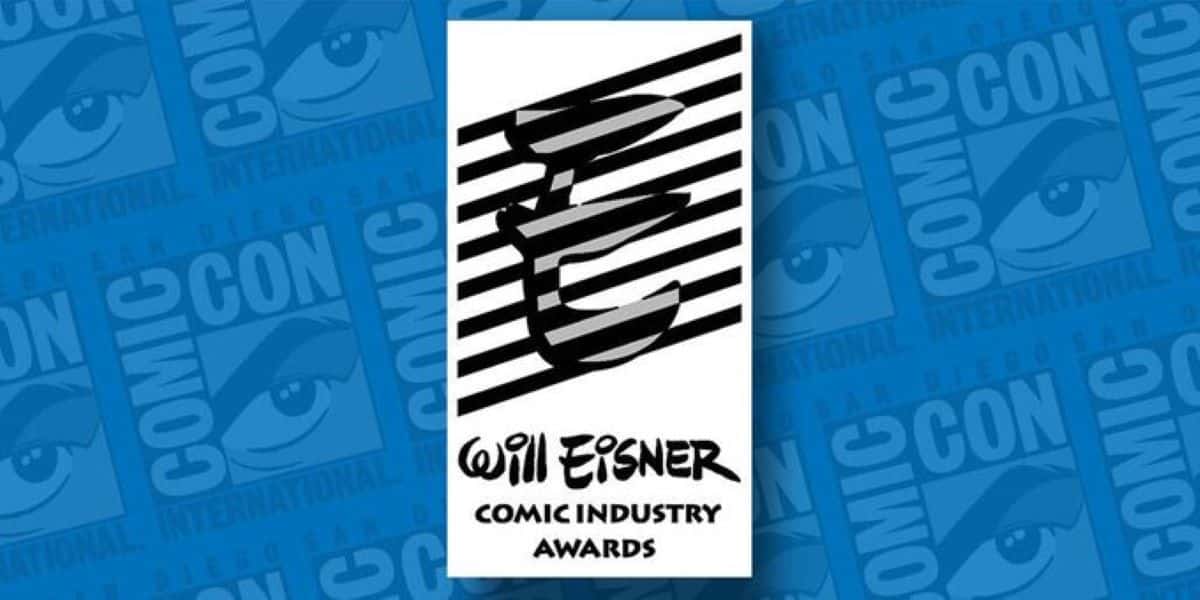



Well said, Heidi. It is also worth noting that the Eisners consistently nominate for Best Letterer authors like Stan Sakai (particularly him) and Mike Allred, who letter themselves, in just one title, while keeping out dedicated letterers such as Ariana or Janice Chiang.
Janice Chiang has lettered DECADES of work on almost every major publisher. Hell she created the ghost rider flame bubble
This topic is important. Janice Chiang is in the pantheon of great letterers. Underrepresentation in awards winners needs to be addressed because women are not getting the recognition they deserve. The first Eisner win for a woman writer of the year was Marjorie Liu in 2018. Not good enough.
Jeannie Lee is also the letterer on The Rose of Versailles…she’s done outstanding work on that!
Comments are closed.